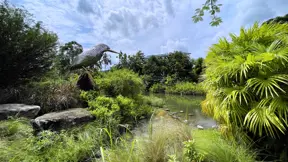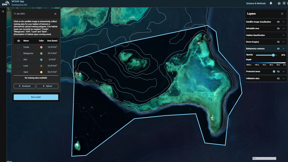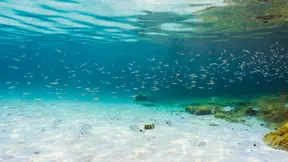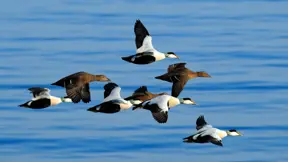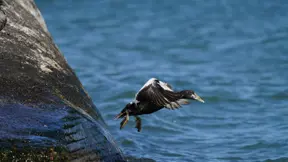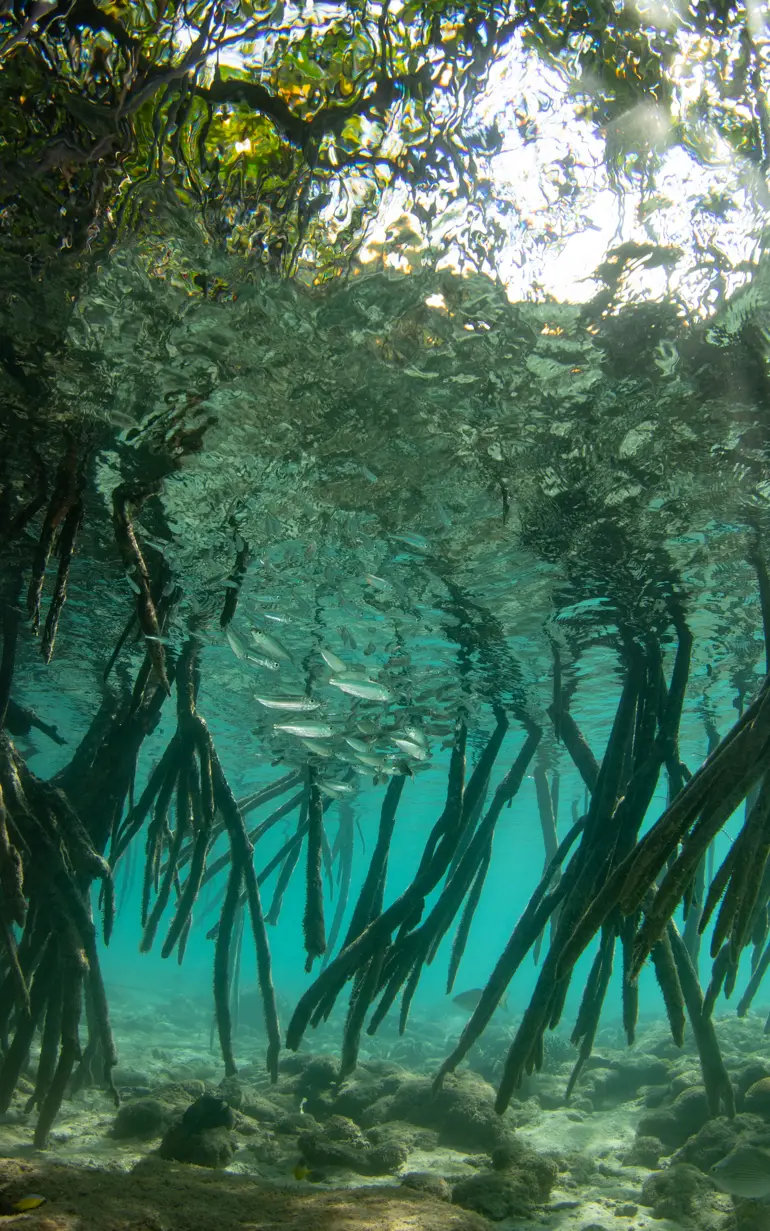
Protect and restore marine biodiversity
Biodiversity is the heartbeat of our planet. Conserving biodiversity is essential for healthy ecosystems, food security and climate regulation—all of which support human and environmental health. Countless fish species and marine organisms depend on stone reefs, coral reefs, mangroves and eelgrass beds as essential habitats. However, both marine biodiversity and marine habitats are under threat from human activities and pressures such as infrastructure development, pollution, invasive species and climate change. Addressing these critical challenges effectively requires looking at the ecosystem as a whole and the interdependence between species.
The Issue
Balancing the protection of nature with economic development is an ongoing challenge, especially as infrastructure projects – such as constructing offshore wind farms, building railways and bridges and expanding ports – can potentially disrupt fragile ecosystems. Marine life is at risk of being impacted, and budgets and timelines can slide if wrong decisions are made due to insufficient or inaccurate data. This may be partly attributed to traditional biodiversity monitoring methods, which are often manual, expensive and sporadic, resulting in significant data gaps. Additionally, the absence of standardised biodiversity metrics and the complexity of ecosystems make it difficult to quantify the impact of industrial and human activities. This poses challenges in identifying optimal protection measures and meeting regulatory compliance.
Why it matters
Marine biodiversity is critical for ecosystem functionality and supports industries and livelihoods worldwide. This is why it is important to monitor, assess and mitigate biodiversity loss no matter the scale of your project. Quantifying biodiversity with standardised metrics is essential for addressing biodiversity concerns and staying compliant with increasingly strict regulations. And only by measuring biodiversity in the context of the entire ecosystem can we truly understand its status and implement meaningful conservation strategies to make a nature-positive impact.
How we can help
DHI has developed comprehensive and science-based methodologies that safeguard biodiversity and promote sustainable ecosystem management on a global scale. We support biodiversity initiatives with integrated solutions for monitoring, analysing, reporting, enhancing and restoring marine biodiversity. We work with various industries, including shipping, ports and offshore wind, to provide structured guidance that helps address biodiversity concerns while ensuring regulatory compliance. We guide our clients on progressively advancing their biodiversity management efforts and selecting the initiatives that enable real and positive impact, no matter where they are on their biodiversity journey.
Integrated solutions
We help governments, organisations and businesses engage in biodiversity conservation through innovative monitoring approaches that include standardised and data-backed reporting metrics. Our scientists and modellers integrate multidisciplinary solutions, linking Earth Observation data with on-the-ground monitoring to cost-efficiently assess biodiversity on broader scales. This approach captures a complete picture of even the most complex biodiversity dynamics, supporting enhanced ecosystem management and conservation efforts.
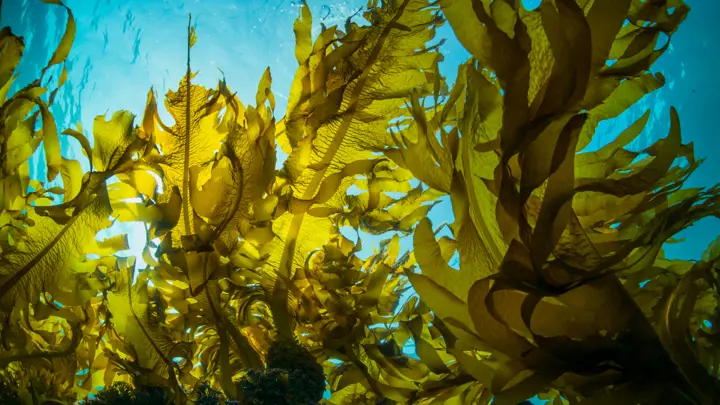
Monitoring, analysis, reporting, mitigation and restoration of marine biodiversity
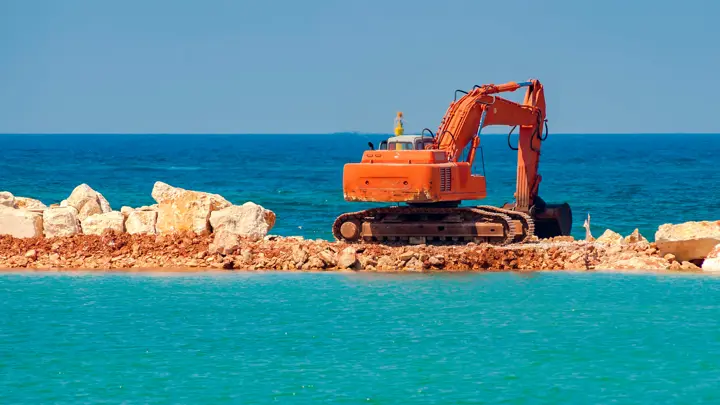
Mapping potential biodiversity impacts of project activities

Data portals to centralise and operationalise environmental data

Detection of species presence using environmental DNA
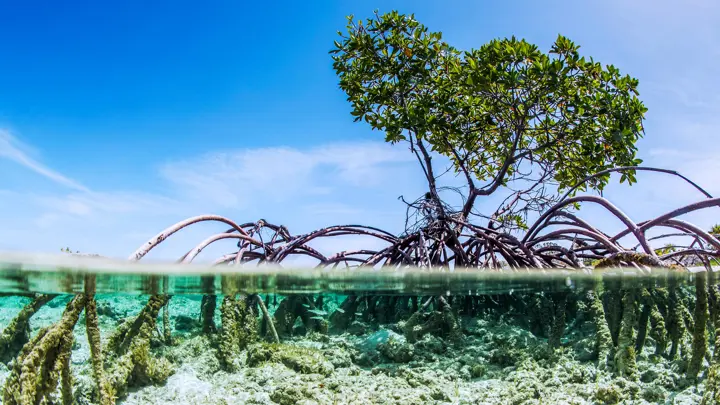
Advanced connectivity analyses to forecast biodiversity hotspots
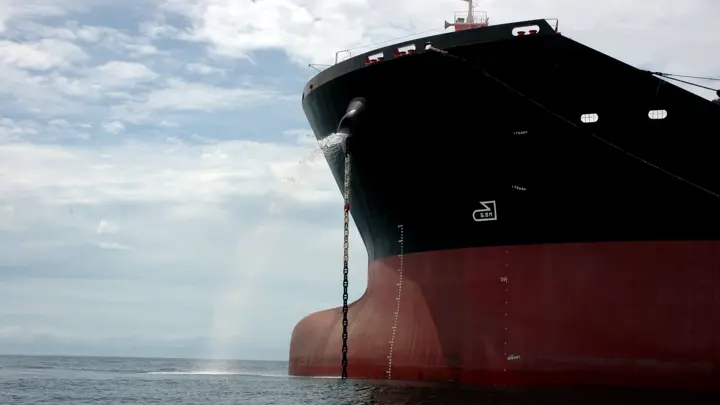
Supporting compliance with the latest reporting standards
You may also like
How can we help?
With our global network of offices, we make sure you get the right answers to your local needs. Tell us about your water challenges and we will get back to you.
